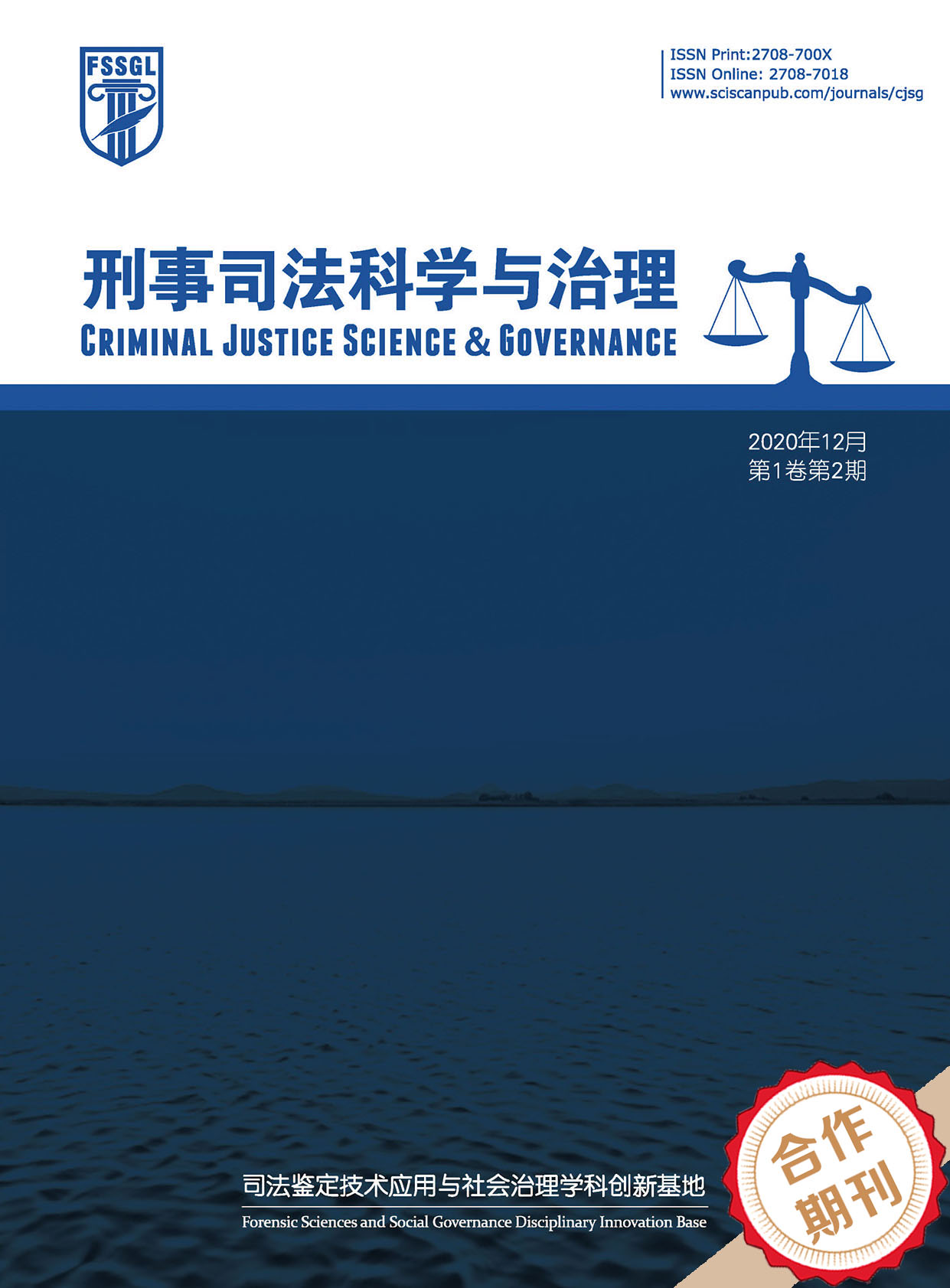Criminal Justice Science & Governance
ISSN Print:2708-700X
ISSN Online:2708-7018
Contact Editorial Office
Subscribe to the latest published information from SCISCAN
以区块链创新构建司法鉴定监管蓝图
Building a Blueprint for Forensic Supervision with Blockchain Innovation
- Authors: 魏智煌¹ 赵青² 龚昌杰³ 杨凯敏¹
-
Information:
1.广东安证计算机司法鉴定所,深圳; 2.贵州省人民检察院,贵阳; 3.福建省网络与信息安全测评中心,福州
- Keywords: 司法鉴定;区块链;智慧司法;电子证据;信息化
- Judicial appraisal; Block chain; Intelligent justice; Electronic evidence; Informatization
- Abstract: 近年来,随着国家法治建设有序推进,国民法律意识不断提高,司法鉴定逐渐走进人们的视野,并被广泛接受。影响司法鉴定质量的因素有很多,其中,司法鉴定机构和司法鉴定人的司法鉴定执业活动是否中立、科学、规范,对司法鉴定活动的鉴定质量常常起到重要的甚至决定性的影响。2019 年,司法部召开“数字法治、智慧司法”信息化体系建设应用推进会,明确了充分发挥科技信息化对法治中国建设的支撑和驱动作用,助推国家治理体系和治理能力现代化。为司法监管行业全面深化“数字法治、智慧司法”建设提供契机。与此同时,区块链技术的应用在国内经历了“区块链 1.0、区块链 2.0 和区块链 3.0”的发展、变革。从“区块链 1.0”比特币的应用,“区块链 2.0”金融、产权、智能资产等领域的应用到“区块链 3.0”社会生活的全面应用,区块链发展从 Dapp 到 DAC 及 DAO,再到 DAS,一步步持续发展,最终被应用于社会治理,进入区块链 3.0 时代。法治时代的发展亟需司法鉴定行业建立一套行之有效的监管体系。信息化和数字化的发展,为监管部门的信息化和数字化建设提供有力支撑。区块链应用技术的革新、迭代,为司法行政科技创新和标准化建设提供土壤,为在区块链上构建智能化政务系统提供更广阔的空间。
- Recently, with the orderly advancement of the construction of the rule of law and the continuous improvement of national legal awareness, judicial expertise has gradually entered the people’s vision and has been widely accepted. There are many factors that affect the quality of judicial expertise. Among them, whether the judicial expertise practice activities of judicial expertise institutions and appraisers are neutral, scientific and standardized often has an important and decisive impact on the quality of authentication. In 2019, the Ministry of justice held a meeting to promote the construction and application of the informatization system of “digital rule of law and smart justice”, which made it clear that science and technology informatization will give full play to its supporting and driving role in the construction of China under the rule of law, and promote the modernization of the national governance system and governance capacity. It provides an opportunity for the judicial supervision industry to comprehensively deepen the construction of “digital rule of law and smart justice”. At the same time, the application of blockchain technology has experienced the development and transformation of “blockchain 1.0, blockchain 2.0 and blockchain 3.0” in China: from the application of “blockchain 1.0” bitcoin, “blockchain 2.0” in the fields of finance, property rights and intelligent assets to the comprehensive application of “blockchain 3.0” in social life. The development of blockchain has been promoted step by step from DAPP to DAC and Dao, and then to DAS. Finally, it has been applied to social governance and entered the era of blockchain 3.0. The development of the rule of law era urgently needs the judicial expertise industry to establish an effective regulatory system. The development of informatization and digitalization provides strong support for the informatization and digitalization construction of regulatory authorities. The innovation and iteration of blockchain application technology provide soil for judicial administration scientific and technological innovation and standardization construction, and provide a broader space for building an intelligent government system on the blockchain.
- DOI: http://doi.org/10.35534/cjsg.0301012
-
Cite:
魏智煌,赵青,龚昌杰,等.以区块链创新构建司法鉴定监管蓝图[J].刑事司法科学与治理,2022,3(1):84-88.














